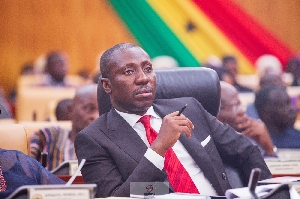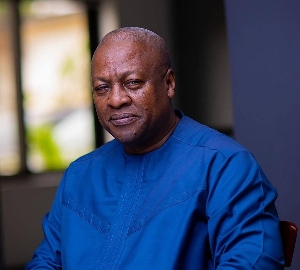- Home - News
- TWI News | TV
- Polls
- Year In Review
- News Archive
- Crime & Punishment
- Politics
- Regional
- Editorial
- Health
- Ghanaians Abroad
- Tabloid
- Africa
- Religion
- Election 2020
- Coronavirus
- News Videos | TV
- Photo Archives
- News Headlines
- Press Release
General News of Monday, 10 March 2003
Source: Ghanaian Time
First Cassava Factory To Start Operation Soon
The Ayensu Starch Factory being established by the government to process cassava into industrial starch for export is near completion with about 95 per cent of the plant already installed at Bawjiase in the Central Region.
Remaining works yet to be completed include electrical connections and the laying of pipelines to the factory site. The modern factory, one of the biggest around the globe has the capacity to produce more than 50,000 tonnes of industrial starch a year. The ?Ghanaian Times? found out during a visit to the factory site at Bawjiase in the Central Region on Friday that major work on the plant had been completed and almost all of its units were ready for action.
Some of the ready units were the tuber reception and preparation, rasping points, extraction refinery, concentration, de-watering, drying and cooling, and packaging. The establishment of the factory began by the Ayensu Starch Company under the President?s Special Initiative (PSI) on cassava starch, in November last year and is expected to start operation next month.
David Walter Construction Limited, a foreign construction firm is undertaking the construction of the factory together with MCD Management Services from South Africa and Group Five UK, a plant installation firm.
Mr. Benjamin Owusu, a production supervisor who took this reporter round the plant, said that the silo could store about three tonnes of powdered starch every hour. He was optimistic that the plant would be ready for production by the end of this month. This plant is expected to be commissioned by the government on April 14, 2003, he said.
Mr. Andrew Quayson, Managing Director of the Ayensu Starch Company Limited told the ?Times? that the company aims at producing 8,000 tonnes of industrial starch worth 1.6 million dollars this year, 17,000 tonnes (3.4 million dollars) next year and 22,000 tonnes (4.4 million dollars) in 2005.
He explained that about 8,000 acres of cassava would be cultivated this year and 12,000 acres next year.










